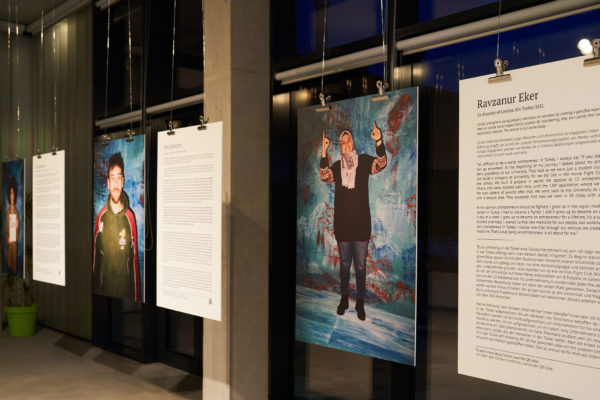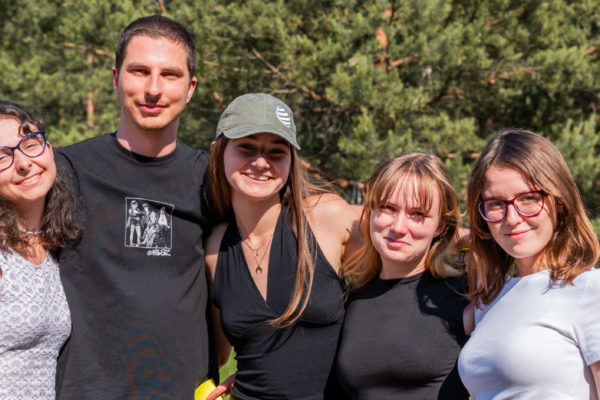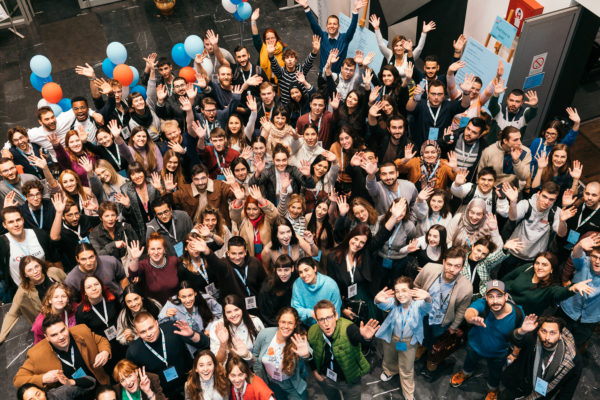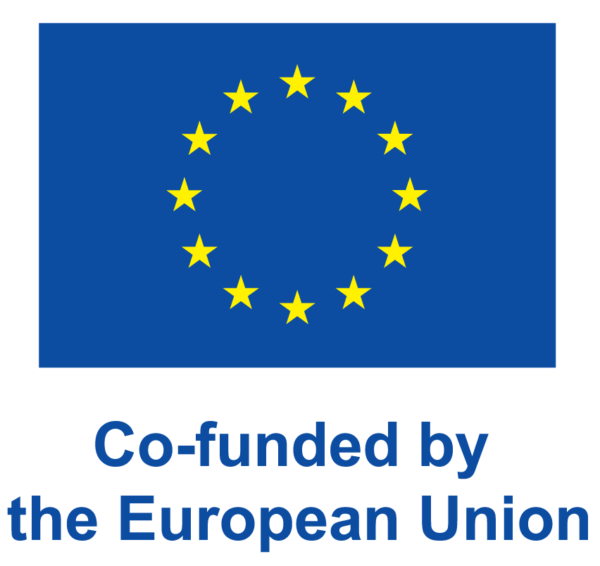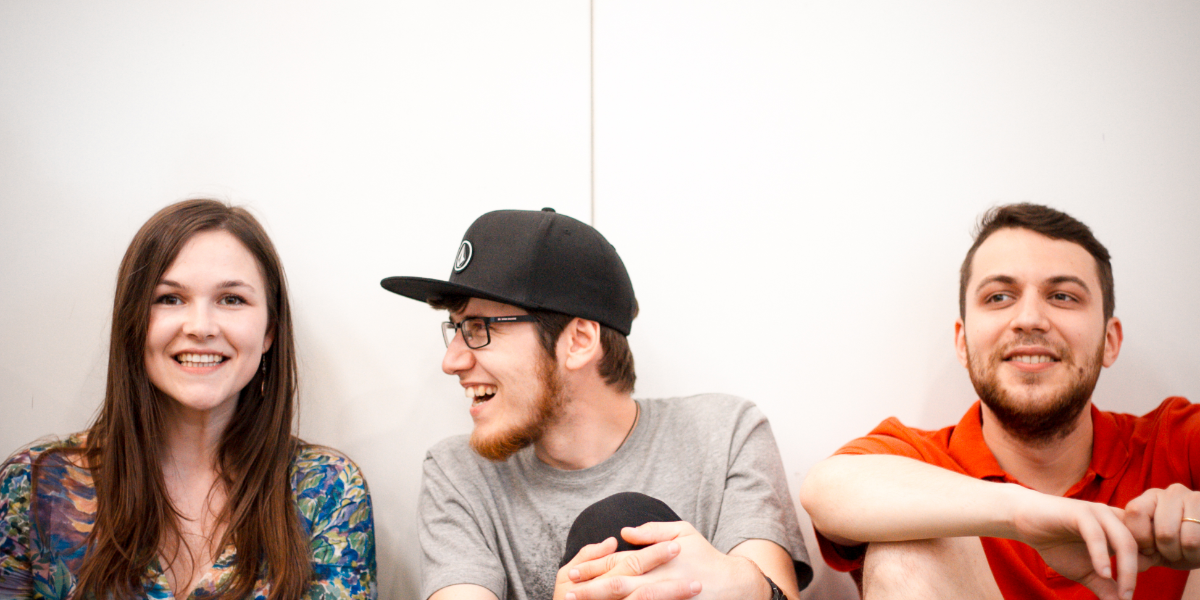
Wellbeing of social entrepreneurs is a game-changer
Social entrepreneurs care about the wellbeing of others. But does that come at the cost of risking their own? This article is a part of our blog series on the […]
Social entrepreneurs care about the wellbeing of others. But does that come at the cost of risking their own?
This article is a part of our blog series on the topic of wellbeing among social entrepreneurs. You can also read our interview with SIA Russia winner who uses online psychological support to combat burnout among entrepreneurs.
Burn-out among social entrepreneurs is a true issue. Social Impact Award’s academic partner – the Vienna University of Economics and Business and its Social Entrepreneurship Center – conducted a survey among SIA alumni including personal wellbeing. Outcomes show that social entrepreneurs are challenged: More than 40% were exposed to some level of burnout. 5% might have experienced severe burnout.
Social Impact Award is in the driver’s seat to train its participants’ skills to stay healthy. Together with HIL Foundation and the Vienna University of Economics and Business, we started to research and implement our findings on wellbeing since 2018. We asked Peter Vandor, our research partner and founder of Social Impact Award, to share the latest findings on wellbeing within the SIA community.
How is wellbeing perceived by young entrepreneurs? Why is it a game-changer for founders and social entrepreneurs?
In the beginning, the founders have to do everything in the organization. Faced with a myriad of different tasks, their passion and energy is the only driver. If they are not well and decide to quit, there is no venture and no impact.
Tell us about SIA’s wellbeing studies. What triggered you to do the math?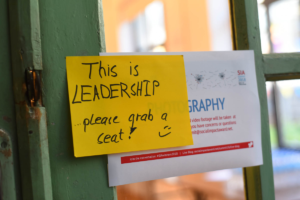
More and more social entrepreneurs in my personal environment suffered from chronic stress and in some cases burnout. I wanted to understand what is going on and what we can do. Also, SIA is in a peculiar position when it comes to founders’ wellbeing. We are well equipped to provide founders with the best tools and mindset to prevent burnout and have a lasting positive impact. But as a program, we also make very high demands. We could risk being part of the problem by raising pressure.
What are the key findings?
Our data from two SIA surveys among current and alumni ventures since 2018 confirmed the issue. The majority of social entrepreneurs had experienced lasting periods of stress. For 20%, this manifested in persistent physical symptoms such as sleeping disorders and anxiety issues, in a few cases even clinical burnout. This is alarming, even though similar rates in other professions and even higher levels of burnout risk in medical and care professions are common.
Much of this is driven by the high demands of entrepreneurial work. In some cases, however, the gravitas of the social problem our alumni work on seemed to amplify the pressure. A respondent explained: “…people wait for your products that could save lives and you are not doing anything. It’s constantly on your mind, the fear that someone could die tomorrow because you took a break.”
SIA can make a difference. Some of our interventions, in particular, 1-on-1 coaching on team issues, had a strong positive correlation with wellbeing. The data suggests that we can be effective in supporting our founders on this level.
Why is SIA pushing this topic? What is going to happen next?
 Drumming the beat of social entrepreneurship comes with a responsibility. If we send thousands of youth on this journey every year, we owe them a realistic picture of the challenges and the best tools to tackle them. Unfortunately, too many programs just focus on the rosy side of entrepreneurship creating unrealistic expectations.
Drumming the beat of social entrepreneurship comes with a responsibility. If we send thousands of youth on this journey every year, we owe them a realistic picture of the challenges and the best tools to tackle them. Unfortunately, too many programs just focus on the rosy side of entrepreneurship creating unrealistic expectations.
We will continue testing and evaluating different interventions to see what helps. I have started further research to better understand the drivers of this phenomenon together with my university and Impact Hub Global.
Your personal rule of thumb to cherish wellbeing?
Coping mechanisms such as exercising, getting professional help or maintaining social support circles (aka meeting your friends) resonate with me.
But the responsibility should not be put mainly on social entrepreneurs. It’s systemic. We have to make sure there is proper education, funding, legal and taxation structures, and recognition for this work. Entrepreneurship is stressful enough. Social entrepreneurs should not need to face extra barriers for trying to solve social issues. The answer is not yoga classes, we need sound institutional frameworks.
——
We are not the only ones trying to provide Social Impact Award participants with the tools and skills to fight the compassion fatigue and achieve personal wellbeing. SIA Russia 2018 winner “You Talk” is leading by example!
Anna Krymskaya, the co-founder of YouTalk, shared with us their success stories regarding their online psychological chat support and how they are supporting SIA Russia in burnout prevention.
About Peter
 Peter Vandor is a senior researcher and co-founder of the Social Entrepreneurship Center at WU, the Vienna University of Economics and Business. In his position, he has been leading 60+ collaboration projects with organizations such as ERSTE Foundation, CERN, UNDP, and the Roland Berger Foundation. His research focuses on social entrepreneurship, migrant entrepreneurship and innovation and has been published in the Journal of Business Venturing and Harvard Business Review. Peter is the founder and academic director of Social Impact Award, a capacity building program for young social entrepreneurs in 15+ countries and initiated the first academic and award-winning course on social entrepreneurship in Austria. Peter was nominated as Global Shaper by the World Economic Forum in 2012 and as SCANCOR Visiting Scholar to Stanford University in 2017.
Peter Vandor is a senior researcher and co-founder of the Social Entrepreneurship Center at WU, the Vienna University of Economics and Business. In his position, he has been leading 60+ collaboration projects with organizations such as ERSTE Foundation, CERN, UNDP, and the Roland Berger Foundation. His research focuses on social entrepreneurship, migrant entrepreneurship and innovation and has been published in the Journal of Business Venturing and Harvard Business Review. Peter is the founder and academic director of Social Impact Award, a capacity building program for young social entrepreneurs in 15+ countries and initiated the first academic and award-winning course on social entrepreneurship in Austria. Peter was nominated as Global Shaper by the World Economic Forum in 2012 and as SCANCOR Visiting Scholar to Stanford University in 2017.



